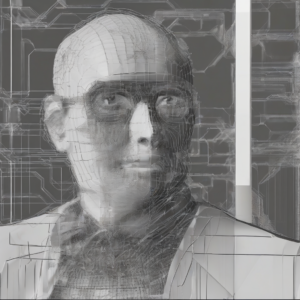Unlocking Global Health Impact: Your Guide to Online Master’s in Public Health
The pursuit of a Master of Public Health (MPH) degree has traditionally involved a significant commitment to on-campus learning. However, the rise of online education has revolutionized the accessibility and flexibility of this crucial field. An online Master’s in Public Health (MPH) offers a compelling pathway for professionals seeking to advance their careers in public health, regardless of geographical location or existing work commitments. This comprehensive guide explores the nuances of online MPH programs, addressing key aspects to help prospective students make informed decisions.
Why Choose an Online MPH Program?
- Flexibility and Convenience: Online MPH programs offer unparalleled flexibility, allowing students to balance their studies with work, family, and other personal responsibilities. The asynchronous nature of many programs enables learning at one’s own pace, accommodating diverse schedules and learning styles.
- Accessibility: Geographic limitations are eliminated. Students from anywhere in the world can access high-quality public health education, breaking down barriers to entry for individuals in underserved communities or remote locations.
- Affordability: Online programs often present cost advantages compared to traditional on-campus options, potentially reducing tuition fees and eliminating expenses associated with relocation or commuting.
- Technological Advancement: Online learning platforms leverage innovative technologies, including interactive simulations, virtual labs, and collaborative tools, enhancing engagement and mimicking the collaborative aspects of traditional classroom settings.
- Career Advancement: An online MPH can significantly boost career prospects, providing individuals with advanced knowledge and skills highly valued in the public health sector. This can translate to increased earning potential and opportunities for leadership roles.
Curriculum and Specializations: Navigating the Options
Online MPH programs offer diverse curriculum options, catering to various career aspirations and interests. While core coursework typically covers foundational areas like epidemiology, biostatistics, health policy, and environmental health, many programs provide specialized tracks or concentrations. These specializations allow students to tailor their education to their specific career goals.
- Epidemiology: This specialization focuses on the study of disease distribution and determinants, equipping students with the skills to investigate outbreaks, analyze health data, and develop prevention strategies.
- Biostatistics: This track emphasizes the application of statistical methods to public health research, preparing students for roles involving data analysis, interpretation, and the design of public health studies.
- Health Policy and Management: This specialization covers the intricacies of health policy development, implementation, and evaluation, preparing students for careers in public health administration and leadership.
- Environmental Health: This track examines the impact of environmental factors on population health, equipping students with the knowledge to address issues related to air and water quality, pollution control, and occupational safety.
- Global Health: This specialization focuses on health challenges in low- and middle-income countries, providing students with the skills to work on international health initiatives and address global health disparities.
- Infectious Disease Epidemiology: This specialization delves deeper into the study of infectious disease outbreaks, surveillance, and control, providing highly specialized skills for disease prevention and management.
Choosing the Right Online MPH Program: Key Considerations
Selecting the appropriate online MPH program requires careful consideration of several factors. Prospective students should evaluate programs based on factors such as accreditation, faculty expertise, curriculum design, technological infrastructure, and career support services.
- Accreditation: Ensure the program is accredited by a recognized accrediting body, such as the Council on Education for Public Health (CEPH) in the United States. Accreditation signifies that the program meets established quality standards.
- Faculty Expertise: Review the faculty profiles to assess their credentials, research interests, and teaching experience. A strong faculty is crucial for providing high-quality instruction and mentorship.
- Curriculum Design: Examine the curriculum to ensure it aligns with your career aspirations and provides the necessary knowledge and skills. Consider the program’s flexibility and the availability of specialized tracks or concentrations.
- Technological Infrastructure: Assess the learning management system (LMS) and other technologies used in the program. A robust and user-friendly platform is essential for a positive learning experience.
- Career Services: Investigate the career support services offered by the program, including career counseling, internship opportunities, job placement assistance, and networking events. These services can be invaluable in launching a successful public health career.
- Program Structure: Consider whether the program is fully online, hybrid, or offers a combination of online and in-person learning experiences. Determine which structure best suits your learning preferences and lifestyle.
- Student Support: Inquire about the level of student support offered, including access to academic advisors, technical support, and peer networking opportunities. A supportive learning environment can significantly impact student success.
- Cost and Financial Aid: Carefully examine the program’s tuition fees and available financial aid options, including scholarships, grants, and loan programs. A comprehensive understanding of the financial implications is crucial for planning and budgeting.
Prerequisites and Application Process: Preparing for Your Application
The prerequisites and application process for online MPH programs can vary, depending on the institution. However, most programs require a bachelor’s degree, although the specific major may not always be a prerequisite. Other common requirements include:
- Transcripts: Official transcripts from all previously attended institutions are usually required.
- Letters of Recommendation: Strong letters of recommendation from academic or professional references are often essential.
- Statement of Purpose: A well-written statement of purpose outlining your academic and career goals is crucial for demonstrating your suitability for the program.
- GRE or GMAT Scores: Some programs may require GRE or GMAT scores, although this requirement is becoming less common in online MPH programs.
- Resume or Curriculum Vitae (CV): A detailed resume or CV highlighting relevant work experience and accomplishments is typically needed.
Career Paths and Outcomes: Shaping Your Future
An online MPH degree opens doors to a wide array of rewarding careers in public health. Graduates are well-prepared for roles in various settings, including government agencies, non-profit organizations, research institutions, and private companies.
- Epidemiologist: Investigate disease outbreaks, analyze health data, and develop prevention strategies.
- Biostatistician: Apply statistical methods to public health research and data analysis.
- Health Policy Analyst: Analyze health policies, develop recommendations, and evaluate program effectiveness.
- Public Health Program Manager: Oversee and manage public health programs and initiatives.
- Environmental Health Specialist: Address environmental health issues, such as air and water quality, pollution control, and occupational safety.
- Health Educator: Develop and implement health education programs to promote healthy behaviors and lifestyles.
- Community Health Worker: Provide direct health services to individuals and communities.
- Global Health Consultant: Advise organizations and governments on global health challenges and initiatives.
The Future of Online MPH Programs: Trends and Innovations
The field of online MPH programs is constantly evolving, with ongoing innovations in technology and pedagogy. Future trends are likely to include:
- Increased use of virtual reality (VR) and augmented reality (AR): These technologies can enhance engagement and create immersive learning experiences.
- More personalized learning experiences: Adaptive learning platforms will tailor the curriculum to individual student needs and learning styles.
- Greater emphasis on interprofessional collaboration: Online programs will increasingly incorporate collaboration with students from other health professions.
- Focus on data science and analytics: The growing importance of data in public health will lead to increased emphasis on data science skills in online MPH programs.
- Expansion of global partnerships: Online programs will continue to foster collaboration with institutions and organizations worldwide.
In conclusion, an online Master’s in Public Health offers a flexible, accessible, and affordable pathway to advance your career in this vital field. By carefully considering the factors discussed in this guide, prospective students can make an informed decision and embark on a fulfilling journey towards making a meaningful contribution to global health.





